How To Budget for Full-Time Travelling: 15 Tips To Keep the Costs Down as a Digital Nomad
Saving money while long-term travelling is easier than it soundsTable of contents
How much does it cost to travel full-time?
For most people, travelling is more expensive than their day-to-day lives.
But what about the cost of living as a digital nomad?
When your life is travelling, you (probably) can’t afford to live like you were on your honeymoon; staying at luxury hotels, eating 7-course dinners, getting driven around privately etc.
Instead, as a digital nomad, you have to kind of live like you would “at home”; staying in an apartment, cooking your own food, having your own transportation…
Making room in the budget for fun activities and experiences is essential. But those become possible by not living it up every single day.
In this guide, we’ll share our best tips on how to keep costs down when living as a digital nomad.
We’ll share how to save on accommodation (and even how to stay for free!), how to save on food, which destinations are the cheapest, how to find cheap flights, and which affordable travel insurance to pick (in short: SafetyWing (adlink) starting at 1.61 USD per day) and so much more. Let’s go!
Disclaimer: You can definitely “be a digital nomad” for just a few months. But these tips make the most sense for seasoned nomads or people hoping to stay on the road for years instead of months.

What to include in your travel budget
While everyone’s budget will naturally look different, there are some things that almost everyone will need to include.
- Flights/long-distance transportation: Travelling across countries and continents can be expensive – and necessary – for the digital nomad lifestyle. Learning how to save here is time well-spent.
- Accommodation: Long-term, this will probably be what you spend the most money on. And where you spend most of your time. Choose accordingly!
- Internet: While your accommodation might include wifi, it might not be as fast as you need it to be. Or you’d rather work from a café or coworking space.
- Local transportation: Having your own wheels can mean freedom, but it can also mean costs. The same thing goes for public transport.
- Food and drinks: It’s almost always cheaper to cook yourself than to eat out. The same thing goes for drinking.
- Experiences/activities: Going on tours quickly adds up – especially if you’re into things like diving or jumping out of aeroplanes. Try to experience things like a local.
- Travel insurance: This is not the place to save. And it can actually save you from huge expenses if something goes wrong.
- Visas: These very much depend on where you’re from and where you’re going.
- Vaccinations: Make sure to stay on top of your travel vaccinations.
- Subscriptions: Most people in this day and age have lots of subscriptions for both personal and business stuff. Some we need, some we want and some we can save money on by being smart.
- Other expenses: You need way more random stuff when you don’t own a house with all of that random stuff in it. This includes everything from rubber bands to medications.

15 tips to keep the costs down as a digital nomad
As we’ve already established, travelling full-time is different from shorter trips or vacations and you need to adjust your budget and spending habits according to your earnings and savings.
We have been digital nomads and long-term travellers since 2017, so we know a thing or two about what to consider to stretch the budget.
Here are our 15 best tips for keeping the costs down:
- Live in an inexpensive country
- Book your accommodation for at least a month at a time
- Steer clear of the tourist trail
- Go in the off-season
- Consider house sitting
- Save money with the right travel insurance
- Be flexible when purchasing flight tickets
- Travel with carry-on only
- Walk or take public transport
- Cut down on your subscriptions
- Save (or earn) money when spending money
- Cook yourself and buy local groceries
- Drink tap water
- Buy a local sim card with data
- Look for free things to do
- Bonus: Don’t spend more than you can afford to
1. Live in an inexpensive country
Perhaps unsurprisingly, this is the big one.
Sure, you can live sort of cheaply in New York City. But there’s a reason digital nomads flock to certain locations like Eastern Europe, Southeast Asia etc.
Tip: Get inspiration on the best places to live on Nomad List.
The cost of living in a place as a digital nomad usually correlates pretty well with the cost of staying in a place as a tourist – but not always.
For example, there are huge savings to be had when renting accommodation long-term in some places. Especially if it’s a place with a distinct and rather short tourist season.
Choosing the right country to stay in as a digital nomad is not only crucial to your budget, it’s also super important for everything else that relates to your experience.

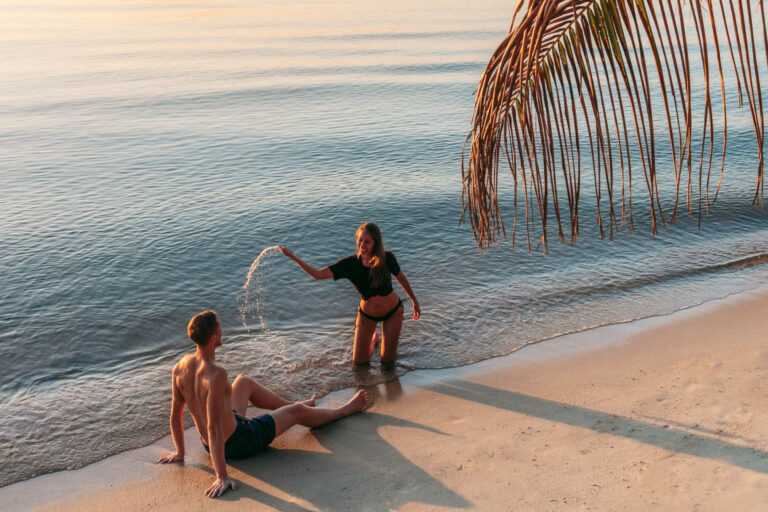
2. Book your accommodation for at least a month at a time
As accommodation will often be the most expensive thing in your digital nomad budget, saving money here can free up money to do more fun things (or to earn less).
Apart from choosing to live in a cheap area/city/country, how long you’re staying can also make a huge difference.
To stay in the city centre of a popular city for a week in the high season can often be about the same price as staying just outside the city centre per month if you agree to a long-term lease.
Renting a place for 6 or 12 months is naturally a big commitment, but it’s a great way to save on accommodation as a digital nomad.
We haven’t stayed in one house or apartment for that long ourselves. But the best accommodation prices we’ve scored have been from staying for 2+ months in the same place.
Month-long stays are optimal for many digital nomads. It’s also what we’ve done the most personally.
Many Airbnbs offer big discounts when you stay for 28+ days. Staying for a month (or more) also opens up the “local” rental market in a whole other way than when you stay for just a week or two.
We have written more about how long to stay in one place as a digital nomad in this guide.


3. Steer clear of the tourist trail
We all want easy access to the best beaches, sights, experiences, restaurants, communities etc. when we’re travelling and living as digital nomads.
But staying in the vicinity of those things often comes with a price.
If you end up living in a place more like a local than as a tourist, then you’ll probably cook most of the meals yourself. And you won’t need to visit the same tourist sites over and over.
Instead, you might even appreciate having a city, forest, beach or similar more or less to yourself – even if they’re then less spectacular than the popular tourist version.
There are surely benefits to staying closer to bigger and/or more popular cities. But for keeping the budget low, staying in a more “remote” place can often mean big savings.

4. Go in the off-season
Many places around the world have high-seasons, shoulder seasons and off-seasons when it comes to tourism and accommodation prices.
Timing your visit with the shoulder season or off-season is a great idea for keeping your costs down as a digital nomad.
Two main factors usually decide when those seasons take place: When locals travel and when tourists travel. While the timing of this might coincide, it’s not always the case.
Weather is naturally a big part of this.
Doing your research well can definitely pay off!

5. Consider house sitting
This probably won’t come as a surprise: The best way to save money on accommodation is to stay for free.
A really cool way to do just that is to house sit.
There are tons of different versions (and websites) for this, but the basic idea is that you take care of a house including plants, potential pets etc. in exchange for staying there freely.
Commitments and time periods vary greatly. Some just need their flowers watered once a week and mail taken in while others have whole farms with different types of animals you need to care for.
We’ve personally had great experiences with house sitting in New Zealand through Kiwi House Sitters and in the US through TrustedHousesitters.
TrustedHousesitters can be used all over the world.
If you use this adlink to sign up for TrustedHousesitters, you will get a 25% discount on your membership!

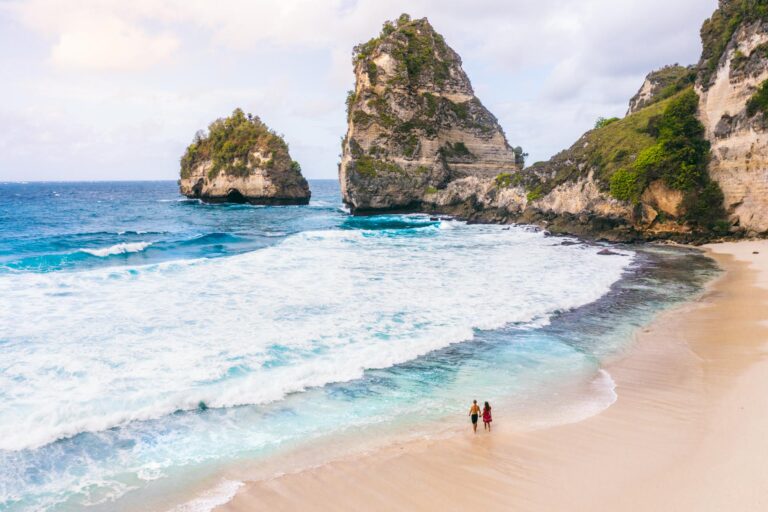
6. Save money with the right travel insurance
Instead of seeing travel insurance as an (important) expense, it makes a lot of sense instead to see it as a smart “financial investment”.
An intangible but very real benefit of having good travel insurance is the knowledge that you’ll be OK financially if an accident does strike.
You, of course, never want to have to use your insurance as it most likely means something bad has happened… But those things will probably happen whether or not you’re insured anyway. So then it’s all about making sure you’re actually covered well!
We’ve had great experiences with the digital nomad-friendly SafetyWing (adlink).
Something quite special is that they both offer global travel insurance for digital nomads that are already on the go as well as options for global health insurance (including coverage for things like regular doctor visits, dental work, maternity benefits etc.).
Another thing we really like about SafetyWing is that it’s created specifically for digital nomads. They know that long-term travellers do not always fit into the box when it comes to “traditional” insurance.
It works like a monthly subscription you can start and stop anytime – and you can even purchase it if you are already abroad or change your coverage as you make plans along the way.
If you haven’t yet decided when you want to go home or what countries you want to visit on your trip, SafetyWing is super flexible.
Read more about SafetyWing or check out their affordable travel insurance here (adlink).
You can also read our guide to the best travel insurance for digital nomads and long-term travellers where we review and compare three different travel insurances that you can buy on the go.
Advertisement

7. Be flexible when purchasing flight tickets
Flying cheaply is a form of art in and of itself.
Here are some of our best tips for finding the cheapest fights:
- Be flexible with your dates: It’s often cheapest to fly during the middle of the week. Try making your search on several different days. We often use Momondo’s (adlink) “+/- 3-day” option.
- Fly at weird times: It’s not always comfortable (nor necessarily cheapest in the end if it means staying an extra night somewhere), but sometimes there is money to be saved by going for those super early or late flights.
- Avoid holidays: Christmas and New Year’s are usually the worst.
- Be flexible with the airport: Flying into a nearby airport and taking local transportation from there to your final destination can sometimes be cheaper than flying directly.
- Book a multi-city ticket: Instead of booking several one-way tickets, it can be cheaper to book a multi-city ticket.
- Break it up: Direct flights are (unfortunately) often more expensive than flights with more stops.

8. Travel with carry-on only
Cutting down on luggage can mean cutting down on costs, too.
Those savings become most present when booking flight tickets. For some routes, bringing an extra suitcase can more or less double the price.
Another way you might save money by only travelling with a carry-on is the local transportation choices you’ll make.
Using cramped and crowded local transport can be a nightmare with huge bags.
But with just a small backpack, you can much more easily jump on the metro, the minibus or even on a scooter.
Make sure to read our guide with the best tips and tricks for travelling with hand luggage only.
We also share 15 helpful packing tips for travelling lighter and smarter so you can bring less stuff and pack it in a more compact way.


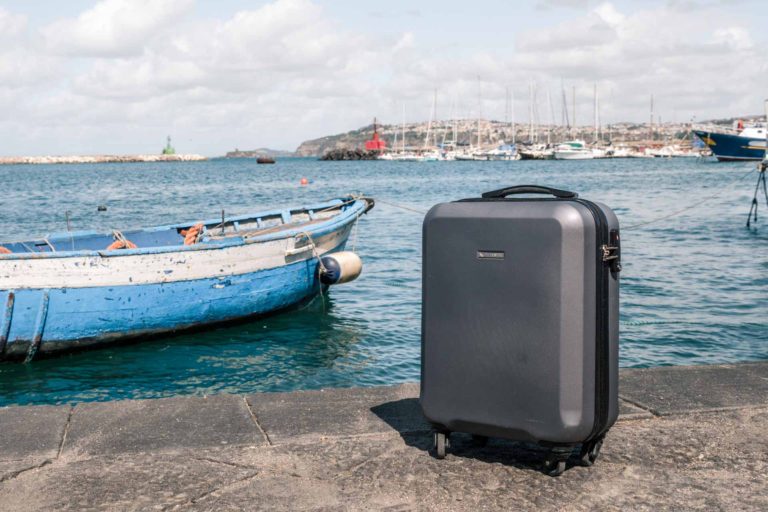
9. Walk or take public transport
Taxis are expensive. So is renting a vehicle yourself.
If it’s safe and viable to do so, walking is naturally the cheapest option for getting from A to B.
Renting (or buying!) a bicycle or similar can also be a great and cheap way to get around.

10. Cut down on your subscriptions
How fast can you name all of the services you spend money on recurringly monthly or annually?
We have written all of our subscriptions down in a spreadsheet and we still have a hard time remembering all of them!
Overall, these expenses can be divided up between being personal and business-related.
Under those two categories, you can probably draw a line between what you need and what you want.
You probably don’t need Netflix or Spotify. That doesn’t mean you should get rid of them. But consider your options for saving money here by either cutting down on services or by for example creating cheaper joint accounts with your partner, friends or family members.
For strictly online services, when you enter into an agreement with said service can make a big difference in your annual spending. A tip is to be aware of any discount codes, seasonal savings or the like.
For example: While we don’t particularly like the whole Black Friday concept, it can be a good time to sign up for certain services.
11. Save (or earn) money when spending money
Spending money is rarely free.
What you buy of course has a price. But so does the money you use to buy that thing.
This is most apparent with currency exchange.
When exchanging your local currency into the local currency of the place you’re visiting, the bank, your credit card and/or the ATM usually charge a fee for that exchange.
If you earn money in the same currency as what you’re spending, that’s great. But actually having an account to keep that money can come with a price attached to it, too.
On the other hand, your money can also “work for you” if you earn interest by having funds in a savings account.
And some credit cards even give you cashback when you spend money.
How to arrange your financials will vary greatly with where you’re from, how you’re earning money, where you’re staying etc. but something that can benefit many digital nomads is to have easy access to great exchange rates.
For this, we personally use Revolut as they make it really simple to exchange currency at favourable rates. They have different plans that can also give you free ATM withdrawals etc.
Disclaimer: This should in no way be considered financial advice. It’s merely our personal opinions and experiences.

12. Cook yourself and buy local groceries
One of the best ways to save money when long-term travelling as a digital nomad is definitely to cook (most) of your meals in your own kitchen.
We love eating out when travelling. Eating local cuisines around the world is a big part of what we like about travelling in the first place.
But we also know that it’s one of our biggest expenses. And it’s often healthier to eat at home, anyway.
If you don’t know how to cook (or don’t like to do it), try to at least learn some easy recipes for meals that can be made with the kitchen equipment and ingredients you have available at your destination.
For breakfast, we almost always eat some kind of müsli/granola with added fruits, nuts and seeds on top of either plant-based yoghurt or milk. When we have access to a blender, we enjoy making smoothie bowls.
Lunch is usually simple. We either eat leftovers or make some kind of sandwich.
Dinner can be everything from pasta or noodle dishes to salads and curries. We have a few recurring favourites but we also try to eat more like the locals as those ingredients will often be cheaper/better/fresher than using imported stuff.
If you don’t cook yourself, here are a few tips to still keep the costs down:
- Eat far away from popular tourist attractions.
- Go out for lunch instead of dinner. Many restaurants have great lunch specials.
- Street food is often even cheaper.
- Remember to factor in tax and tips in the price (especially in the US).
- Takeout is often cheaper than eating in.


13. Drink tap water
Water is essential for all of us.
Having a good water strategy is a great way to save money as a digital nomad when living in a place for longer.
It’s ideal if the tap water is drinkable. Then drink that. If it’s safe but just doesn’t taste great, consider using a simple water filter.
To filter out unsafe particles, it can make a lot of sense to invest in a better water filter.
If a filter is not an option you can often get a hold of huge 6, 10 or 20-litre water containers some of which can even be filled up cheaply at a local water station.
We personally travel around with a water filter from TAPP Water. We use the EcoPro.
When we add it up, it’s really incredible how many water bottles (and money!) we’ve saved this way over the years.
Save €20 on your TAPP Water purchase by using this adlink.
Another tip is to make it a habit to order tap water or purified water when dining out instead of mineral water, soft drinks or similar.
14. Buy a local sim card with data
Having access to the local network can mean you’re able to make and take local calls as well as use data whenever you’re out and about.
While this might not immediately save you money, we still think it’s worth including as it has been super helpful for us in so many to have local sim cards when living as digital nomads.
First of all, you become less reliant on wifi that might be hit-and-miss.
Secondly, you’ll be able to work in and from places that otherwise wouldn’t have been possible.
Tip: Make sure to get a plan where you’ll be able to share the data from your phone with your laptop or other devices.

15. Look for free things to do
Search online for “Free things to do in x” for great free experiences at your destination or ask a local, the hotel receptionist or your Airbnb host.
Free activities often include public parks and recreational areas, churches, cool architecture, flea/food/street markets, viewpoints and the like.
While some things will probably never be free, there are often ways to do popular activities in a cheaper manner – for example by taking public transport over private tour companies or by going at specific times.
Some museums even have free entrance on specific days!
Also, going hiking is almost always free.
We have lots of tips to free things to do anywhere in the world in this guide if you are travelling on a tight budget.

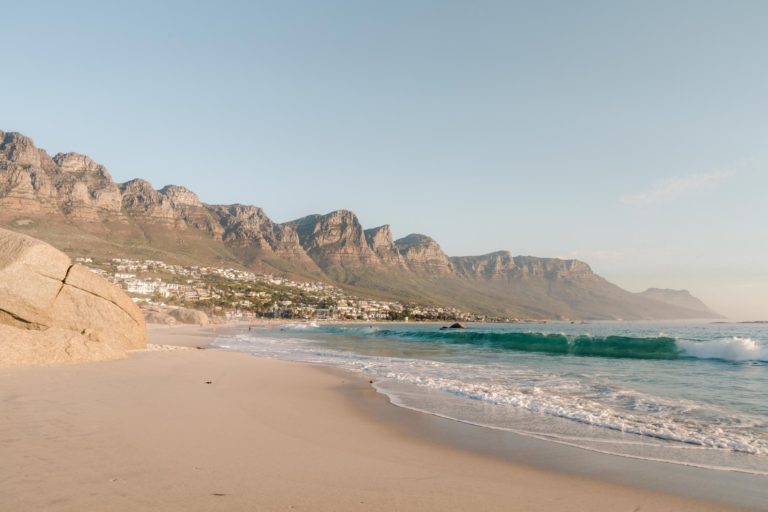
Bonus: Don’t spend more than you can afford to
Groundbreaking, right?
Keeping a detailed budget is the best way to keep on top of your expenses.
For most people, this is not exactly a fun activity. But neither is staring at an empty bank account!
Even if you don’t intend to keep to a specific budget or write down everything you buy for the rest of your life, trying out keeping a budget can be a great way to become more aware of how you spend your money.


Thanks for reading
Thanks for making it to the end!
Hopefully, you can use some of our tips on how to budget for full-time travelling and keep the costs down while living the digital nomad lifestyle.
Do you have any tips you want to share with us? It would be amazing to hear what works for you in the comments below!






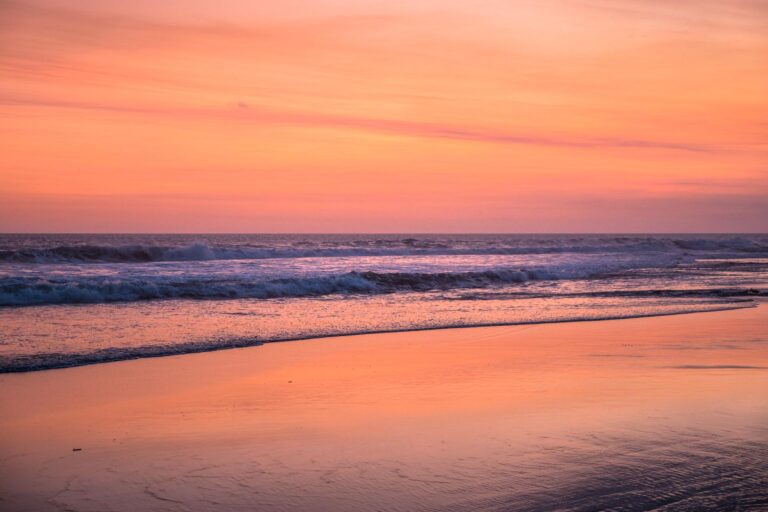
 Book cheap hotels
Book cheap hotels  Find the best flight deals
Find the best flight deals  Nomad insurance
Nomad insurance  Our Camera Gear
Our Camera Gear Our Packing List
Our Packing List